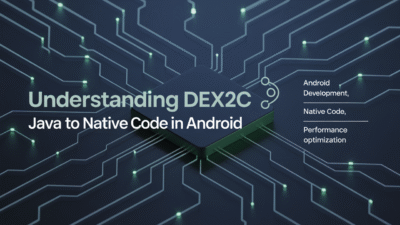The Android Software Development Kit (SDK) is a powerful toolkit that enables developers to build robust and feature-rich applications for the Android ecosystem. Understanding its components is essential for creating high-performance apps efficiently. In this blog post, we’ll explore the core elements of the Android SDK and how they contribute to streamlined app development.
What is the Android SDK?
The Android SDK is a collection of tools, libraries, and documentation used to develop, test, and debug Android applications . It provides everything a developer needs to create apps that run on Android devices, including APIs for accessing device features, emulators for testing, and utilities for debugging and performance analysis .
Core Components of the Android SDK
The Android SDK includes several critical components that work together to facilitate efficient application development:
1. Android SDK Build Tools
These are essential for compiling your code into an APK (Android Application Package). The build tools also include utilities such as aapt (Android Asset Packaging Tool) and dx (Dalvik Executable) compiler, which help in packaging resources and converting Java bytecode into Dalvik bytecode .
2. Android Emulator
The emulator allows developers to test their apps on virtual Android devices without needing physical hardware. It supports various Android versions and device configurations, making it easier to ensure cross-device compatibility .
3. Android Debug Bridge (ADB)
ADB is a versatile command-line tool that facilitates communication between your development machine and an Android device or emulator. It enables tasks such as installing apps, running shell commands, and debugging applications directly from the terminal .
4. Android Studio
As the official Integrated Development Environment (IDE) for Android development, Android Studio offers a comprehensive environment with code editing, debugging, and performance profiling tools. It integrates seamlessly with the SDK, providing a unified interface for managing SDK components and dependencies .
5. Android Jetpack Libraries
Jetpack is a suite of libraries designed to simplify common development tasks and encourage best practices. These libraries cover areas like UI components, data handling, and background processing, helping developers write cleaner and more maintainable code .
Key Android App Components
In addition to the SDK tools, Android applications themselves are built using specific components defined by the platform:
- Activities: Represent single screens with a user interface. Each activity manages interactions within its own window .
- Services: Run in the background to perform long-running operations without needing a user interface .
- Content Providers: Manage access to a structured set of data, allowing apps to share data securely .
- Broadcast Receivers: Respond to system-wide broadcast announcements, such as low battery warnings or incoming SMS messages .
These components enable modular app architecture and support the dynamic nature of Android applications.
Efficient App Development with SDK Tools
Modern Android SDKs come equipped with advanced tools that enhance productivity and performance. For example, the latest updates have introduced improvements in animation rendering and resource optimization, resulting in smoother UI transitions and faster load times . Developers can leverage these enhancements to deliver high-quality experiences while reducing development complexity.
Additionally, frameworks like Flutter have gained popularity for cross-platform development, offering performance benefits and a rich set of widgets that integrate well with native Android components . However, for fully native apps, the Android SDK remains the most powerful choice.
Conclusion
Mastering the Android SDK and understanding its components is crucial for any developer aiming to build efficient and scalable Android applications. From debugging tools to modern libraries like Jetpack, each component plays a vital role in streamlining development and improving app performance. As the Android ecosystem continues to evolve, staying updated with the latest SDK features will be key to delivering cutting-edge mobile experiences.
